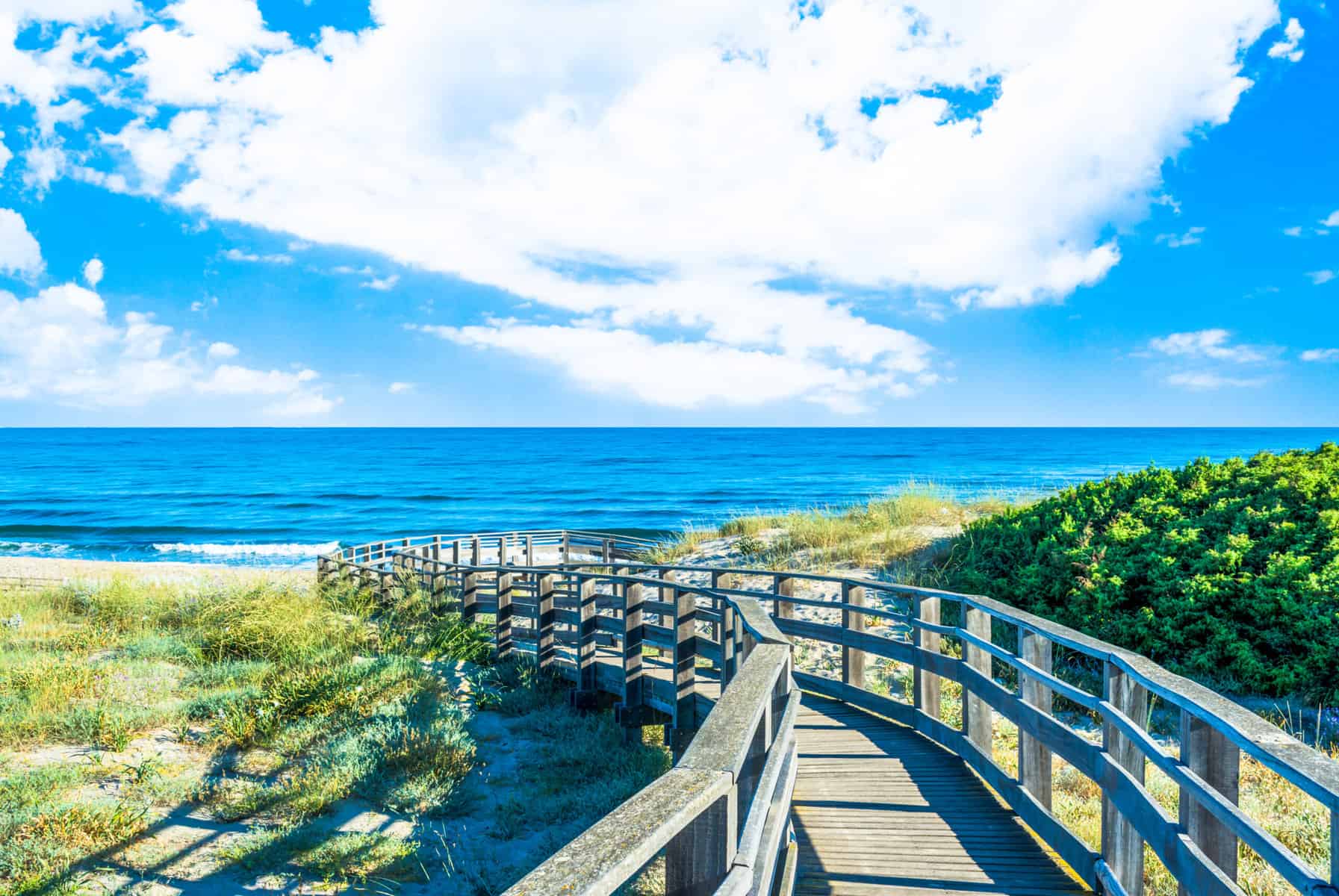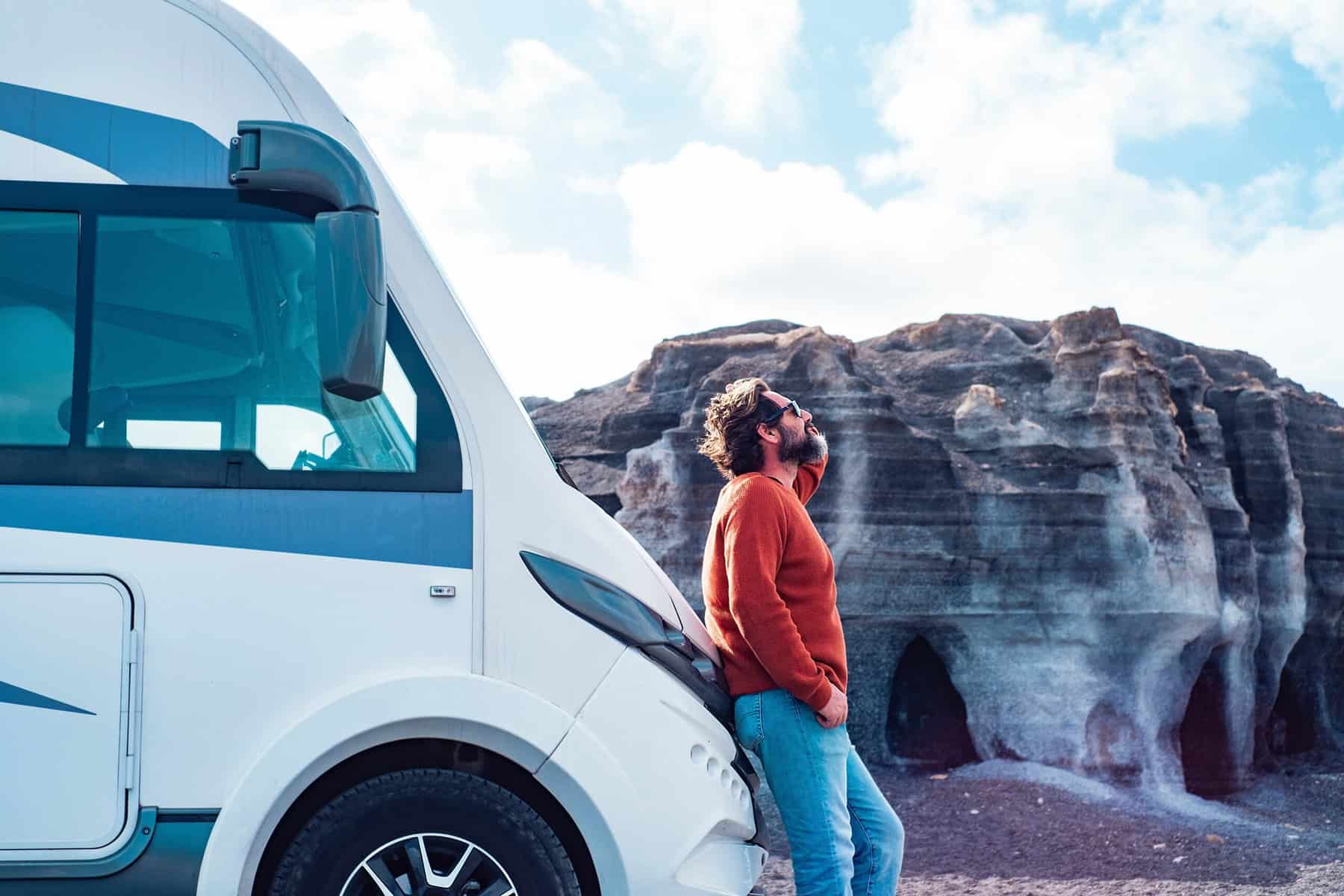Many RVers feel OK to carry and consume cannabis (CBD) products for medical or recreational use. After all, recreational marijuana is legal 21 U.S. states (and 37 allow medicinal use). CBD product made from hemp are totally legal everywhere. But even if your RV is a full-time home that ends up in a legal state, RVing with cannabis products can be tricky (and sometimes illegal) in the eyes of the law.
Here’s what you need to know about crossing state lines, and the most current laws on RVing with cannabis in the United States and Canada.
Where is Cannabis Legal in the US?
Consumption and production of cannabis (marijuana) products has grown into a $31.8 billion dollar industry since certain states began decriminalizing use and possession of the ancient plant. It doesn’t matter if you’re in New York or Missouri, today it seems like you can’t drive anywhere without passing a marijuana dispensary, or even a “420-friendly” RV campground. Cannabis is now legal in 21 states and two U.S. territories.
More territories and U.S. States allow recreational marijuana than ever before!
- Alaska
- Arizona
- California
- Colorado
- Connecticut
- Guam
- Illinois
- Maine
- Maryland
- Massachusetts
- Michigan
- Missouri
- Montana
- Nevada
- New Jersey
- New Mexico
- New York
- Oregon
- Rhode Island
- Vermont
- Virginia
- Washington
- Washington, D.C.
The Problem of RVing with Cannabis in Legal States (and Non-Legal Ones)
Despite widespread decriminalization at the state level, and even the growth of “420-friendly” campgrounds, marijuana is still illegal at the federal level in the United States. It is highly illegal to transport it across state lines.
Weed laws impact cannabis consuming RVers (and all citizens, really) in two big important ways that override any state cannabis laws.
Whether you carry medical or recreational marijuana inside your RV, the federal government has the power to send you to jail for a federal crime in any state. Simply put, it’s not smart to go RVing across state lines with any kind of marijuana edible, vape cartridge, tincture, or other consumable.
Can you carry it in your camper while RVing across borders where cannabis is legal in both states?
Let’s say you travel between California and Oregon, two states with liberal recreational and legal marijuana use laws. If you get stopped by a police officer who finds pot in your camper, you can be convicted of interstate drug trafficking laws.
Cannabis consumption or carrying is not legal when RV camping at a national park, or while boondocking on BLM land, even in legal states.
Again, all federal laws supersede state cannabis laws. If you light up or eat a pot edible while boondocking on land owned by the federal government, you are technically committing a federal crime. Ingesting any kind of substance with an active ingredient that can alter your mind is also grounds for a driving while intoxicated (DWI) violation too.
RVing with Cannabis in Canada is Similar to Crossing State Lines Inside the United States
Canada decriminalized pot at the national level. Despite this bold move, it is still illegal to go RVing with marijuana across the Canadian border whether coming or going. And in many cases, local provincial laws can override national legislation.
It is illegal to take cannabis – including products containing cannabis, such as edible cannabis, cannabis extracts and cannabis topicals, and all products containing CBD – across the Canadian border, whether you are entering or leaving the country:
Drugs, Alcohol, and Travel: Government of Canada
- No matter how much cannabis you have with you.
- Even if you use cannabis for medical purposes in any form, including cannabidiol (CBD), unless authorized by Health Canada.
- And even if you are travelling to or from a municipality, state or country where cannabis has been legalized or decriminalized.
Cannabis industry travelers may be excluded in some cases. It’s always smart to check cannabis transportation laws in the United States and Canada.
In Canada, RV Camping with Marijuana is Legal on Certain Government Properties
Let’s say you decide to go RVing with cannabis in Canada. And you head to a federally-owned Parks Canada destination. Unlike in the United States, it is totally legal to hold or consume pot at any Parks Canada campground, historic site, or marine sanctuary. However, all Parks Canada locations are subject to local laws in that province. For example, in Alberta you can consume pot while hiking in the backcountry. But in Alberta, that is totally illegal.
Traveling to Canada and consuming cannabis this summer? Get familiar with Parks Canada Cannabis Laws by Province.

In the US, Your RV Can Be Searched for Cannabis at Any Time
The U.S. Constitution has a Fourth Amendment that protects people from unreasonable searches and seizures by the government. It places strict limits on how police can search a person’s residence. But this fourth amendment law excludes recreational vehicles.
Any motor home, travel trailer, camper, or automobile falls under the “Motor Vehicle Exception clause.”
In short, the U.S. Supreme Court repeatedly rules that police officers have authority to enter a motorhome or travel trailer without a search warrant. This is provided that the officer has probable cause to believe illegal marijuana products are on-board.
The “automobile exception” is an exception to the general requirement of a warrant for searches and seizures under the Fourth Amendment. Under the exception, a vehicle may be searched without a warrant when evidence or contraband may possibly be removed from the scene due to the mobility of a vehicle such that it is not practical to secure a warrant without jeopardizing the potential evidence.
For instance, the automobile exception allows an officer to make a warrantless traffic stop and search a truck of a vehicle when gun parts were observed in plain view on the front seat of the vehicle.
Notably, the automobile exception applies to all types of automobiles and the vehicle does not need to be in operation for the exception to apply. For example, the automobile exception has been found to apply to parked motor homes.
Cornell Law School Legal Information Institute
If pot is found in your RV during a search, you could be looking at prison and a fine of up to $250,000.
Four Cannabis and RVing Laws That Apply Everywhere
It’s tough to remember where pot is legal and where it isn’t. Don’t worry. All you need to remember is these four rules about RVing with marijuana that always apply regardless of where you go camping:
- Private businesses like RV parks make their own cannabis rules. In almost every case, a private business owner has the authority to decide if it’s legal on their property.
- Consuming pot in public is generally not allowed. Even in Las Vegas, it’s still illegal to toke up in public spaces or near schools.
- Crossing any international border with marijuana is illegal. Don’t even think of going into Mexico or Canada in your RV with pot. It’s a good way to land up in jail.
- If you drive your RV stoned and get caught, you will go to jail. This one doesn’t need an explanation. Don’t do it.
Many states are looking the other way when it comes to marijuana-related offenses. In some cases, you might get slapped with a misdemeanor cannabis charge. But all it takes is one person in authority having a bad day to hit you with a harder charge. Why risk it? Sometimes RVing with marijuana on board just isn’t worth the potential blowback.




